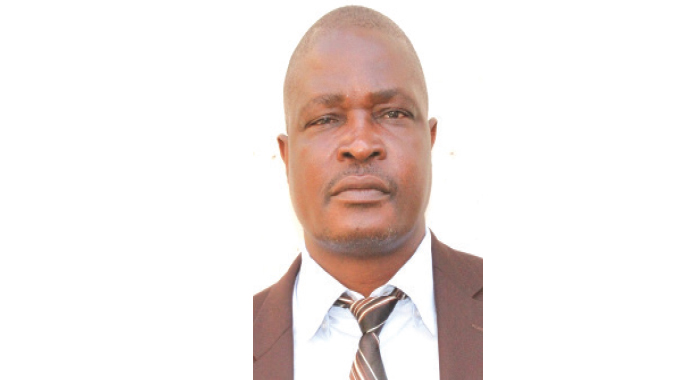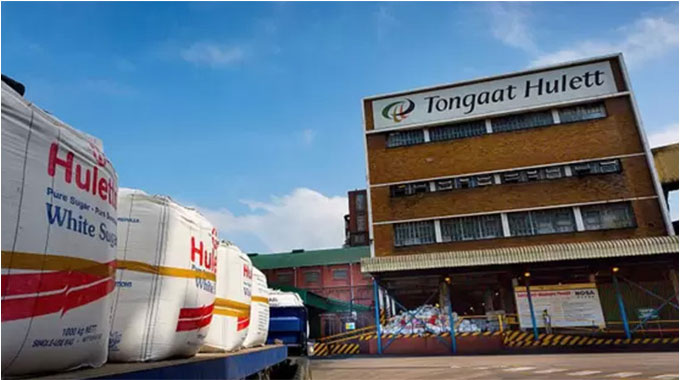Depletion of circumcision shrines affect forestry ecosystems

Vincent Gono, Features Editor
MWENEZI and Chiredzi districts in Masvingo province are largely populated by the Shangani communities who pride themselves in circumcision as the basis of their cultural identity.
The practice has been carried out since time immemorial according to the traditional leaders in the districts albeit in a very secretive way to those that do not belong to the culture and it is not done indoors.
There are shrines that are dedicated for that outside people’s residence. The shrines are dedicated forest areas that can accommodate a whole community and they are sacred. The forests are therefore preserved and trespassing is a serious offence.
Previously, this according to Chief Chitanga, had a preservative effect on the forest ecosystem as the community wouldn’t allow the cutting down of trees in the protected areas.
The chiefs have been playing an important part in the preservation of the shrines and by extension the forests through sanctioning those that trespass into the areas that carry a spiritual definition of a tribe, a community.
“We have been doing our rites since time immemorial. It defines us as the Shangani people, it has a lot of significance to our communities. On the issue of our shrines, I would say they are still intact because communities appreciate their value in shaping our identity.

HIV and Aids
“So, those places that are largely forests are preserved, and we hope it will remain like that because there has been a challenge in striking a balance between our culture and the modern ways of doing circumcision that disregard shrines and their spirituality. There is also need to balance the forest ecosystem preserved through cultural shrines and the growing need for agricultural land.
“The modern way doesn’t take into account the need to preserve areas where the rites should be done but we are happy that we have so far managed to harmonise the two by taking what we think is important from the modern ways and leaving the dross,” said Chief Chitanga.
He said it was unfortunate that they were no longer a single mass of people as part of the Shangani community had been displaced into other areas where the practice was not culturally valued.
These, he said, formed miniature groups that find it difficult to properly continue with the practice and preserve the shrines in areas within and outside the district where they are mixed with others who are not part of the culture.
“Our people are scattered within and outside Mwenezi and Chiredzi. Some have moved further and are now surrounded by communities that do not value circumcision and it has been difficult for them to keep the practice although a number of them still travel back for our cultural rites,” he added.
He said as chiefs, they once raised concern when there was conscription and involvement of strangers in their circumcision rites when the drive towards voluntary circumcision started in the country.
They also raised the red flag over the depletion of the circumcision forests. They said the NGOs that were pouring money for the programmes were concerned about numbers and reports and not the preservation of culture.

NGO-Image taken from Shutterstock
“At first, we were skeptical about the modern methods of circumcision but we later embraced it after realising that the methods were more hygienic and aid in the prevention of HIV/Aids.
“So, we agreed that the doctors should come and do the circumcision but they don’t get into our camps.
They do it with the aid of our own people. The practice is therefore so much alive. We have a group that will soon be going into the camp,” said Chief Chitanga.
Headman Mpapa of Chikombedzi in Chiredzi under Chief Sengwe had no kind words on the way the circumcision rites were practised before they engaged the authorities.
He said there was involvement of strangers — people who do not belong to the culture and women in the circumcision rites which was taboo.
“We raised it with the authorities and we are finding each other now. Our culture was under siege. There was conscription of strangers some of whom have not been circumcised into our camps and that was taboo but now we go to the camp and the doctors do not go in,” said Headman Mpapa.
Chief Neshuro of Mwenezi said while modern methods were smart, they were worried that the Shangani culture whose definition lies greatly on the practice and distinguished them from among other cultures was fast facing extinction.

deforestation
“Not that we are trying to shut others out. We are happy that the nation has seen something good in our culture and that the era where we used to be looked at as backward and uncivilised has finally ended.
“But while at it we implore authorities to respect our culture and know that we are not after numbers and reports when we do it but after fulfilling our cultural pride. Circumcision is our cultural pride and it defines our identity. So, we don’t just do it like anyone. It is not an afterthought but it’s one of the most important cultural arteries of Shangani culture.
“The other thing is the depletion of our cultural rites’ forests. There used to be thickets meant for that along the river but the massive cutting down of trees especially in areas where people were resettled has created open spaces. Villagers who are not of that culture do not respect the circumcision rites and the forests thereof but we hope the Environmental Management Agency will be dealing with that,” said Chief Neshuro.
He said they felt that their culture had been compromised as such things as kokomba which was an initiation rite for girls into womanhood was no longer valued.
And with the boys being circumcised at schools and clinics, the initiation of boys into manhood was no longer as respected as it used to be back then when the culture was exclusive to the Shangani communities.

Dr Jefta Sakupwanya
Headman Samu of Chiredzi said he would not comment on the challenges they were facing but said circumcision the rites were traditionally done when there were good rains and good harvests.
Secretary for Provincial Affairs and Devolution in Masvingo Dr Jefta Sakupwanya said the chief’s concerns were genuine and urged strict adherence to cultural values from those involved in the circumcision programmes.
“We are a country that respects the cultural rites of any group of people as long as that culture does not interfere with the rights of other people. We urge the resettled farmers to respect the cultural rites of the areas that they were resettled and avoid cutting down trees that deforest cultural shrines,” he said.
The Shangani communities are mostly under Chiefs Sengwe, Tsovani, Chitanga and Gezani in the then Nuanetsi district before it was divided into the current Chiredzi and Mwenezi districts.










Comments